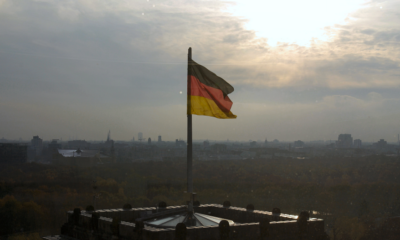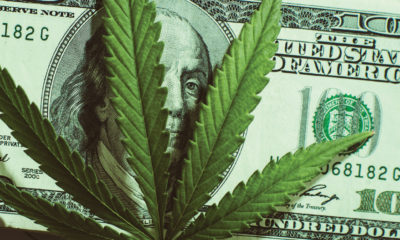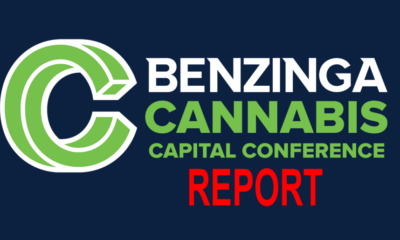IN A THREE-WEEK stretch in Spring, Singaporean authorities executed two men for separate cannabis trafficking cases. On April 26, Singapore executed 46-year-old Tangaraju Suppiah by hanging for allegedly coordinating the trafficking of 1 kilogram of cannabis that he never actually had in his possession at any time. On May 17, the Southeast Asian
nation executed a 37-year-old man, whose family asked that he not be named, for trafficking 1.5 kilograms of cannabis.
Governments across Southeast and East Asia have long been notoriously brutal and authoritarian when it comes to meting out capital punishment for drug related offenses, including cannabis trafficking. Beyond Singapore, the death sentence for cannabis trafficking is still administered in Indonesia, as well as China, which leads all countries worldwide in capital punishment.
Thailand used to be one such country. Cannabis-related offenses came with stiff penalties up to and including capital punishment. Despite hundreds or even thousands of years of traditional cannabis use as medicine and food in Thai culture, the cultivation, possession, distribution and trafficking of the plant was punished harshly.
In 2018, Thai authorities changed course and legalized medical marijuana for adults. Last June, a recreational cannabis market was established in Thailand and I recently visited to participate in this booming green economy as a cannabis tourist.
Advertisement
Stoners Without Borders
The Thai cannabis market proof-of-concept is a huge step forward towards a more sensible and humane drug policy in Southeast Asia, where cannabis has been used traditionally by hill tribes and indigenous cultures for thousands of years.
In Bangkok alone, there are over 1,000 cannabis dispensaries and related stores (See “Made in Thailand,” p60), as well as many more “under-the-table” storefronts and vendors. There is a booming gray market with many storefronts and street cart vendors operating openly and selling higher-THC strains and branded edibles.
I visited around a dozen dispensaries and purchased cannabis products in locations varying from a kiosk at the entrance to a crowded mall, in storefronts on a busy tourist walking street, at food stalls located in unassuming suburban neighborhoods, and even some CBD in a 7-11.
The numerous dispensaries that I came across mainly sold flower, with a couple of them offering edibles that were very low potency. The gummies I found typically had a dose range of 1.6-2mg of THC per gummy, as opposed to the 5-10mg+ one often sees at legal dispensaries in the United States. The unlicensed vendors were the only ones selling edibles with stronger potencies, such as 100mg cookies and brownies.
Major international cannabis brands have opened up shop across Thailand, signaling an opportunity for the Thai market to integrate into the global cannabis cultural fabric alongside highly established international brands like Cookies, while also maintaining its own homegrown identity.
Advertisement
420 Friendly?
The laws around cannabis consumption are still largely out of sync with the push towards a more tolerant approach to cannabis in Thai society. It’s illegal to smoke in the street and most dispensaries likewise don’t allow consumption. Many hotels and condos forbid cannabis smoking, leaving the main options for consumption to be select dispensaries and lenient bars, as well as the good old-fashioned clandestine approach in alleyways and on open rooftops.
Many local businesses have taken advantage of the cannabis tourism potential by offering infused massages and elevated dining experiences, though typically it’s just CBD on the menu.
Cannabis use in Thailand has been omnipresent forever despite its illegality, as any backpacker or rural Thai farming family can tell you. The stigma around the plant still lingers with the urban elite and the Thai middle class, but the move towards establishing a legal market is a huge step in the right direction.
As competing governmental and societal attitudes about cannabis and drug use continue to shape drug policy in Southeast Asia and beyond, demonstrating the social benefit and environmental sustainability of a legitimate and legal cannabis market falls upon all of us in the global cannabis community as a moral duty to uphold.
If we want a future in which cannabis entrepreneurship is rewarded as the gainful and responsible enterprise it is instead of being punished as an executable offense, then we must demonstrate through direct and clear action that integrating cannabis into mainstream society and reforming drug policy will immediately and indefinitely benefit society at large.

 Cover Features11 months ago
Cover Features11 months ago
 Cover Features11 months ago
Cover Features11 months ago
 Legal9 months ago
Legal9 months ago
 Branding10 months ago
Branding10 months ago
 Products9 months ago
Products9 months ago
 Branding12 months ago
Branding12 months ago
 Business12 months ago
Business12 months ago
 Podcasts11 months ago
Podcasts11 months ago














